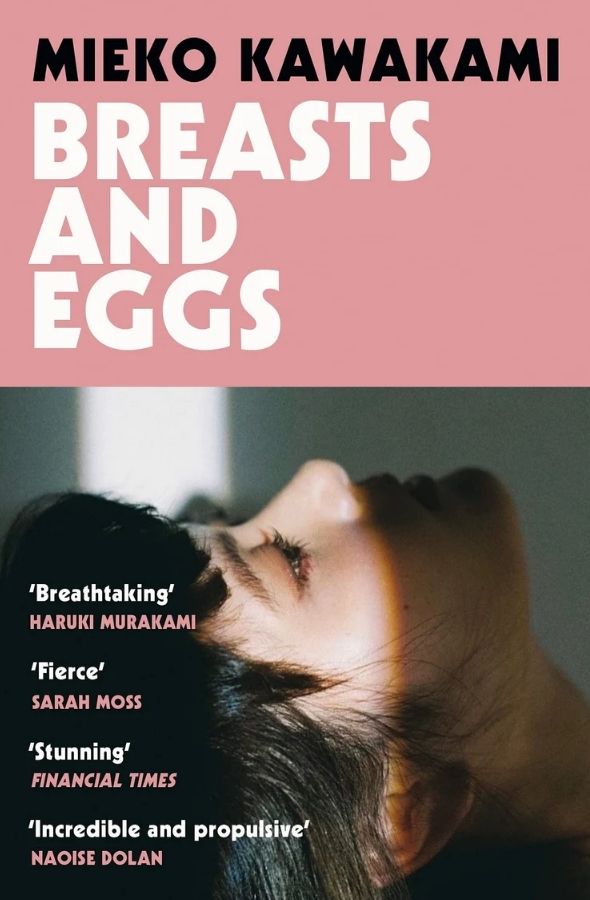A quiet commentary buried under a somewhat unhappy tone; Breasts and Eggs, which was Mieko Kawakami’s first significant literary work, stands as an interesting read for this reason.
Split into two halves (separated by a decade), we follow Natsu as she becomes a budding author and attempts to wrangle with the pressures of society, work, and a desire to bear a child.
In the former half, Natsu is an amateur writer and struggling young woman; aspirations of obtaining a solid writing career are all that seem to keep her going, as well as a desire to distance herself from her troubled past and support her sister. The latter half focuses more on a mellowed, nearly unwilling Natsu as she begins to dabble with the idea of starting a family, but remains conflicted about love and marriage, as well as a mother’s position within Japan.
There is an intriguing twist and development in how Natsu chooses to go about beginning this family of hers, but I don’t want to be the one to divulge that here. It certainly is an empowering novel, and one that respects and openly acknowledges the struggle of women without trivialising it or forcing it down the reader’s throat.
Natsu, her sister, and her niece all represent different attitudes and generations of women in Japan. Natsu’s sister, for example, feels compelled to alter her image with breast surgery — whereas her daughter, Natsu’s niece, takes such offence to the idea that she enters into a lengthy period of silence against her mother. Once again, it highlights the attitudes between the old and the young, with Natsu straddling a line somewhere between the two.
Overall, it’s a read that decides to predominantly focus on women, and it does so in a way that you don’t even question the minimal presence of male characters. Whilst I don’t rank it just as high as I did with Heaven, I still feel eager to recommend one of my favourite author’s work to anyone who will give it a chance.
It chooses to show more than it does tell, and reading between the lines reveals a lot of small comments on many aspects of womanhood, motherhood, and Japanese society around the turn of the 21st Century.

Leave a Reply